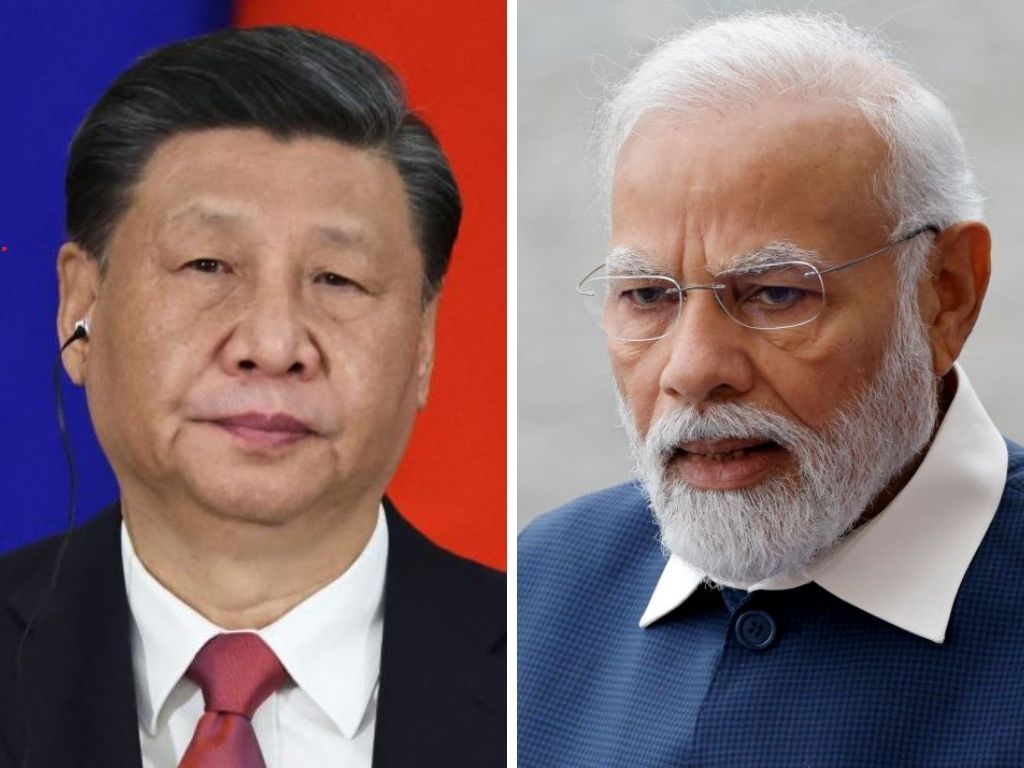- Monday, April 21, 2025
In 2019, the official X (then Twitter) account of the Chinese ambassador in India had posted a congratulatory letter from Xi addressed to Modi even before the final result emerged.

By: Shubham Ghosh
WHILE several world leaders congratulated Indian prime minister Narendra Modi after he took oath for the third consecutive term, Chinese president Xi Jinping did not, unlike after the elections in 2019.
This year, besides a greeting from the diplomatic circles, a brief congratulatory message came from Chinese premier Li Qiang on Tuesday (11), two days after Modi took oath along with his council of ministers.
Chinese state news media Xinhua reported that Li said a “sound and steady development of China-India relations is not only conducive to the well-being of the two peoples but also injects stability and positive energy into the region and the world”.
According to the report, the premier also said that Beijing is willing to work with New Delhi to push forward bilateral relations in the right direction.
Read: China protests over Modi’s reply to Taiwan president greetings on poll win
The Chinese leadership’s congratulatory message to Modi came a week after the election results were announced on June 4 and it was not from the top leader Xi, who has been in power since 2012.
In 2019, the official X (then Twitter) account of the Chinese ambassador in India had posted a congratulatory letter from Xi addressed to Modi even before the final result emerged.
Read: Xi Jinping missing G20 summit not unusual: India
Congratulation letter from H.E. Mr. #XiJinping, President of the People’s Republic of #China, addressed to Shri. #NarendraModi for the #NationalDemocraticAlliance winning the 17th Lok Sabha election of #India. pic.twitter.com/FKFduaDarM
— Xu Feihong (@China_Amb_India) May 23, 2019
That year, Modi’s Bharatiya Janata Party received its biggest mandate out of three elections between 2014 and 2024, winning 303 seats to have a majority on its own.
“I attach great importance to the development of China-India relations and would like to work with you to guide the development directions of the bilateral relations, enhance mutual political trust, expand pragmatic cooperation and promote the closer developmental partnership between the two countries to a new height,” Xi wrote in 2019.
This year, the BJP failed to win a majority on its own and depended on alliance partners of the National Democratic Alliance to get over the majority mark to form the government.
The newly appointed Chinese envoy to India, Xu Feihong, had tweeted a day after counting saying he looked forward to “making joint efforts with the Indian side for a sound and stable China-India relationship, which is in line with the interests and expectations of both countries, the region and the world”.
Chinese foreign ministry spokesperson Mao Ning also tweeted a brief message on the results, stating, “We look forward to a healthy and stable China-India relationship.”
A few days later, India’s foreign ministry spokesperson Randhir Jaiswal thanked his Chinese counterpart, while also stressing that the “normalisation” of bilateral ties must be shaped by “mutual respect, mutual interest, and mutual sensitivity”.
The prime minister of Pakistan, Shehbaz Sharif, also congratulated Modi a bit late and his Indian counterpart thanked him as well. But the fact that the top Chinese leader did not congratulate Modi is clearly a signal that not all is well between Beijing and New Delhi.
China was also miffed when Modi thanked the president of Taiwan, which Beijing claims to be its part, congratulated the Indian leader over his electoral victory and the latter thanked him, saying he looked forward to a “mutually beneficial economic and technological partnership”.
Lodging a protest with India about the virtual interaction, spokesperson Ning said, “India has diplomatic relations with China. China opposes all forms of official interactions between the Taiwan authorities and countries having diplomatic relations with China. This position is very clear and India knows this well.”
Relations between India and China have seen significant downturns over the past decade, and more particularly, after 2019. They also had a standoff in Doklam area in Bhutan in 2017 that went for two-and-half months but Modi and Xi met at the BRICS summit in China’s Xiamen city in September that year after the two nuclear-armed neighbours withdrew their respective armies from the region.
Over the past decade, relations between India and China have experienced significant downturns.
India and China engaged in a two-month standoff in Bhutan’s Doklam area in 2017. However, the two leaders met at the BRICS summit in September of that year following the withdrawal of their respective armies from the region.
The two countries saw yet another military standoff in mid-2020, this time in the eastern Ladakh region which even saw deaths of soldiers on both sides following a physical clash. Some friction points in the latest dispute saw de-escalation but the two countries are yet to resolve their military standoff completely.
While India has maintained that normalisation of relations depends on restoring peace and security to the border areas, the fact that the rift is far from over was clear when China did not have an ambassador in New Delhi for more than 18 months, till Xu was posted in Delhi in May.
The Chinese media, too, expressed happiness over the fact that Modi’s BJP did not win a majority on its own in this year’s election.
Modi and Xi had last met during the BRICS summit in South Africa in August last year where they had informal talks about border issues, but no significant progress was made.
The Chinese president was also absent at the G20 leaders’ summit in New Delhi held in September last year and among several explanations that were cited were — deliberately snubbing India and avoiding meetings with Joe Biden, the president of the US with which China doesn’t have smooth ties. Qiang had represented China at the event.